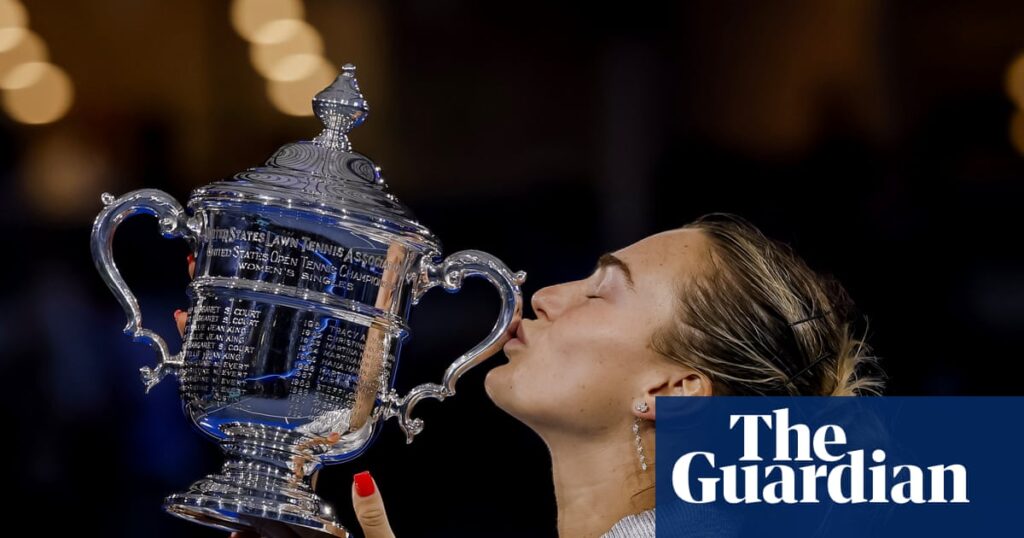Aryna Sabalenka thought she had everything figured out. She believed she had done all the work necessary, harnessing successfully her once uncontrollable power into consistent excellence. After overcoming so many hurdles en route to becoming the best player in the world, she felt ready for anything. Sabalenka was convinced she could handle any challenge that came her way.
It was not until her excruciating French Open final defeat against Coco Gauff that Sabalenka understood this was not true. As she struggled with her nerves under such significant pressure and punishing windy conditions, the 27-year-old was outplayed by a tireless, gutsier opponent in Gauff who broke her down by forcing her to work hard for every single point.
In the days after that defeat, as the discourse continued over her subsequent unsporting remarks during her press conference, Sabalenka travelled to Mykonos, Greece with her boyfriend, Georgios. She used the brief break to drink tequila, disconnect from tennis and let off steam, but Sabalenka dedicated much of her time to pondering her next steps. After her Australian Open final defeat by Madison Keys, Sabalenka had believed it was important to just move on from that match. Her performance in Paris, however, meant alarm bells were ringing in her head.
“I was in Mykonos, reading my book, enjoying the view,” she said, laughing. “And I was just thinking: ‘Why would I let my emotions take control over me in those two finals?’ It felt like: ‘OK, if I made it to the final, it means that I’m going to win it.’ And I sort of didn’t expect players to come out there and to fight. I thought that everything was going to go my way easily, which was completely the wrong mindset.”
This season has been a lesson in humility, showing Sabalenka there is always room for improvement and the work is never finished. She had unlocked so much from her game and achieved so much already, performing at the highest level week in, week out with few significant dips, but that did not mean everything would come easily for her.
Those lessons were all on show on Saturday as Sabalenka held off one of the few players capable of overpowering her from the baseline. She kept her nerve in the tense final moments, defeating Amanda Anisimova 6-3, 7-6 (3) to defend her US Open title and win her fourth grand slam title.
“Going into this final I decided for myself that I’m going to control my emotions,” Sabalenka said. “I’m not going to let them take control over me, and it doesn’t matter what happens in the match. If she breaks me back or if she plays incredible tennis – of course, it’s a final, and she’s going to be fighting.”
With every new triumph, it is hard not to think of what Sabalenka’s game looked like when she arrived on the tour. She started her career bashing every ball as hard as possible with barely a thought in her mind. She has since worked herself into one of the most consistent big tournament players of the past decade apart from Serena Williams. Sabalenka has now reached the semi-final or better in 11 of her past 12 grand slam tournaments, the only anomaly being a quarter-final defeat at the French Open last year when she was visibly struggling with food poisoning.
after newsletter promotion
So few players in the history of the sport have achieved these things and so the biggest question surrounding Sabalenka’s career now is how high she can rise on the all-time list. Her next challenge is to produce similar results at Wimbledon and the French Open. Although Sabalenka has shown herself to be an all-court player, and her impressive improvements on clay were underscored by her run to the French Open final this year, she has won all four of her major titles on hard courts; 18 of her 21 titles overall have also come on hard courts.
At 27 years old, Sabalenka is at her physical peak and she continues to give herself title-winning opportunities at nearly every grand slam she enters. If she continues to approach them as she did in New York, having the humility to accept the talents of her opponents while calmly searching for solutions, there will be more victories to come.


